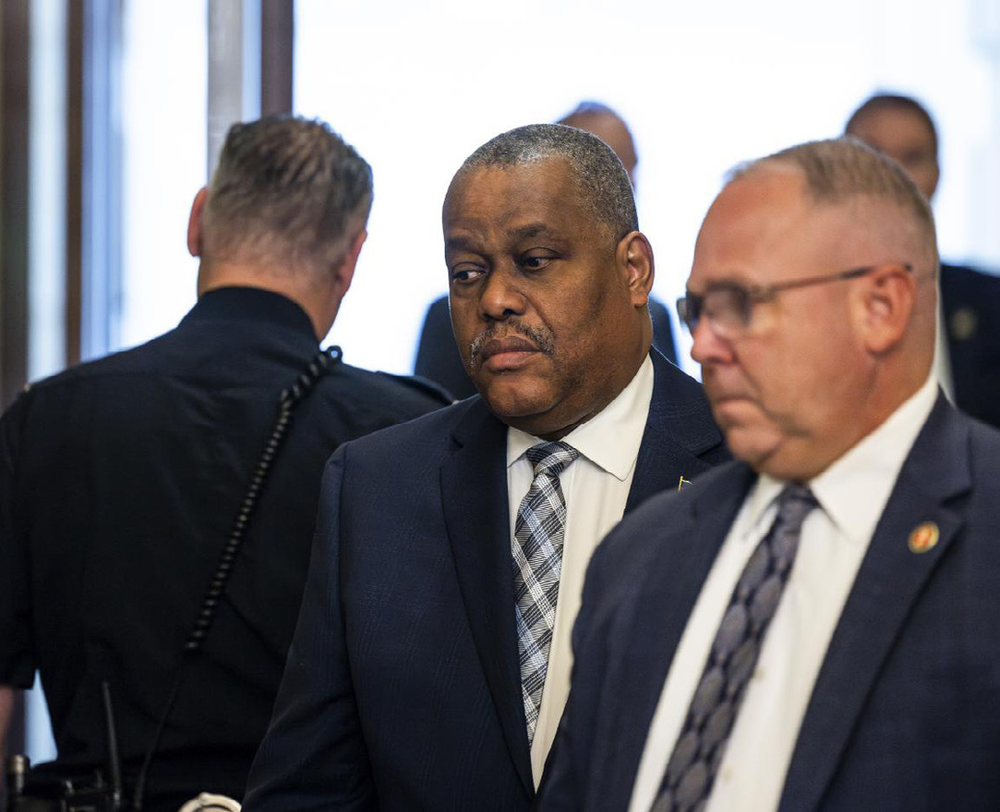
By Frances Robles
The former U.N. official appointed to guide Haiti through a crisis driven by gang violence has been dismissed by the nation’s ruling council, amidst a political power struggle coinciding with a surge in kidnappings and violence.
The individual, Garry Conille, 58, a physician with a background leading UNICEF’s Latin America regional office, was brought on board in late May to act as interim prime minister of Haiti. He was expected to collaborate with the ruling council to facilitate elections for a new president next year.
In line with an executive order released Sunday evening in the official gazette, Le Moniteur, Haiti’s transitional council appointed Alix Didier Fils-Aimé, proprietor of a dry cleaning chain and a former Haitian Senate contender, to take over his position. A former president of Haiti’s Chamber of Commerce, he studied at Boston University and defines himself on LinkedIn as “an entrepreneur” and “an engaged citizen.”
Following the assassination of Haiti’s last president in July 2021, no elections have taken place. Earlier this year, the previous prime minister was ousted by a coalition of gangs that seized control of the capital, Port-au-Prince, launching assaults on various targets including police stations, prisons, and hospitals.
The former prime minister, Ariel Henry, unable even to return home from an international trip, resigned in April amid rising homicides and rampant gang violence that displaced thousands.
Conille, fluent in English and viewed as distanced from conventional party politics due to his decade-long absence from Haiti, was regarded as a key figure by the international community, who play an influential role in Haiti’s financial and political matters.
Some analysts have characterized his removal as a politically motivated coup and questioned the legitimacy of the presidential council’s authority to enact such a decision. The power to dismiss a prime minister typically resides with the parliament; however, with no elections held, Haiti is without a parliamentary body at present.
This dismissal represents yet another challenge for Haiti, as power vacuums and instability are frequently cited as significant factors preventing the country from effectively combating gangs that have dominated many areas.
Conille had been involved in overseeing an international contingent of police officers, largely from Kenya, who arrived in Haiti in June to attempt to restore order.
However, from the outset, Conille’s relationship with the transitional presidential council, a nine-member body governing Haiti until presidential elections are possible, was fraught with tension. In a nation characterized by political factions and rivalry, Conille upset council members by undertaking actions such as visiting Washington without prior notification.
In his capacity as prime minister, Conille is the chief of government, while the seven voting members of the council take turns in the role of “president,” head of state.
Yet, while Conille traveled to the United Nations under full diplomatic protection, a council member holding the “president” title was initially denied official security by the U.S. government, and another council member was precluded from a significant bilateral meeting.
Recently, the council had requested Conille to reorganize his Cabinet, a request he declined, according to a spokesperson for one council member. Conille’s attempts to have three council members accused of corruption expelled from office appeared to be the final straw.
As part of the executive branch, it was seen as improper for Conille to interfere in judicial matters, indicated Jean Junior Joseph, a spokesperson for Edgar Leblanc Fils, a transitional council member who did not participate in the vote to dismiss the prime minister or endorse the order appointing a new candidate.
“This genuinely displeased his superiors in the Council of Transition,” Joseph mentioned. “We require complete security and unity among our leaders.”
Conille’s spokesperson did not respond to multiple requests for input. This marks the second instance of Conille holding the role of prime minister; he previously resigned in 2012 after just four months due to escalating tensions with the incumbent president.
The council voted to terminate his position on Friday, coinciding with the U.N.’s announcement that certain regions in Haiti were nearing famine-like situations.
Stephanie Tremblay, a U.N. representative, reported nearly 4,900 fatalities between January and September. This figure has already surpassed the 4,789 deaths recorded throughout the previous year. A recent massacre in Pont-Sondé, located in the Artibonite region, resulted in over 100 fatalities.
Over 700,000 individuals have been displaced across the country.
“We are witnessing isolated instances of famine-like conditions in regions where displaced persons are residing,” Tremblay stated.
